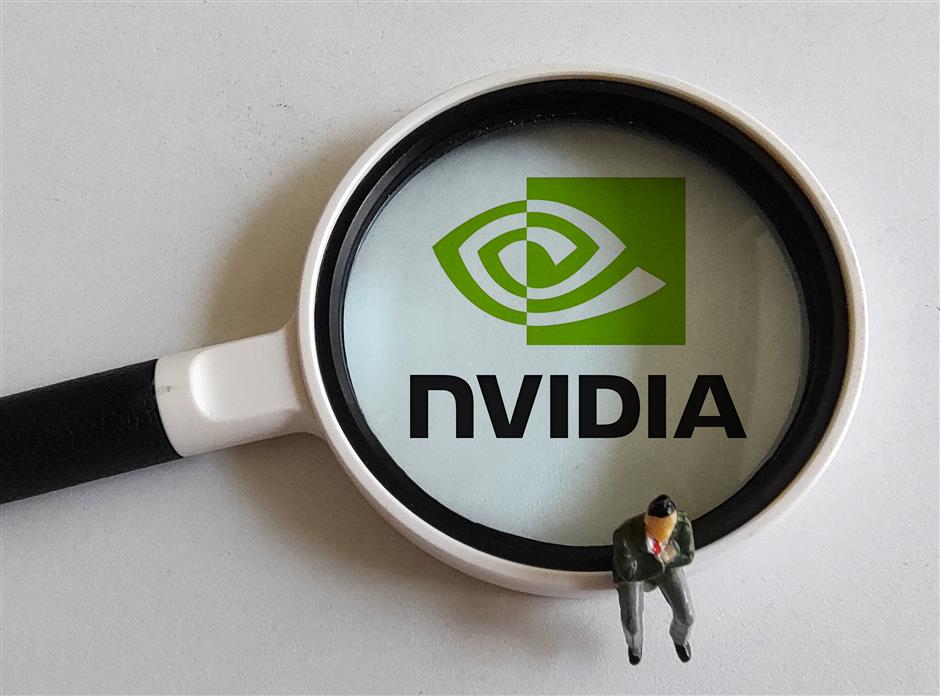Nvidia says 'happy to answer any questions' as China launches antitrust probe
Chip giant Nvidia has responded to a China antitrust investigation by saying it is "happy to answer any questions regulators may have."
"Nvidia wins on merit, as reflected in our benchmark results and value to customers, and customers can choose whatever solution is best for them," the US-based firm said in a statement on Tuesday.
"We work hard to provide the best products we can in every region and honor our commitments everywhere we do business. We are happy to answer any questions regulators may have about our business."
The response came after the State Administration of Market Regulation said on Monday night it would launch an antitrust investigation of Nvidia's acquisition of Mellanox, an Israeli-American supplier producing high-speed Ethernet cards and specializing in network interconnect equipment, including network interface cards, switches, and cables.
Nvidia's shares dropped 2.55 percent in Monday (US time) trading.
The case traces back to April 2020 when Nvidia announced it would acquire Mellanox for US$6.9 billion. After the acquisition, Nvidia integrated Mellanox's technology into the development of its core data center GPU products, marking a significant step in becoming a leader in computing power for the AI era.
As required by international acquisitions, the deal needs approval from relevant countries. Although Chinese regulators approved the transaction at the time, they imposed several antitrust conditions to prevent post-merger monopolistic risks, which Nvidia was required to comply with.

The restrictive conditions can be reviewed six years after they take effect, at which point Nvidia can apply to the regulator for their removal. Until officially lifted, the conditions remain in effect and, if Nvidia fails to comply, the regulator can take action according to the relevant provisions of the Anti-Monopoly Law.
As reported by Jiemian.com, when approving the acquisition, the State Administration of Market Regulation explicitly stated that the merger of Nvidia and Mellanox could potentially have anti-competitive effects in the global and Chinese markets for GPU accelerators, specialized network interconnect equipment, and high-speed Ethernet adapters.
As a leader in the AI chip industry, Nvidia's GPUs are in high demand and are considered critical assets in global AI computing investments.
According to TechInsights, Nvidia has consistently held over 80 percent of the market share since 2022 in the AI chip sector for large-scale data centers. Combined with its NVLink and CUDA software ecosystem, Nvidia is widely regarded as the dominant force in the industry, with competitors struggling to keep up.
As Nvidia rapidly rose to become an industry giant, it also faced antitrust investigations in several countries this year.
In July, France announced charges against Nvidia for alleged anti-competitive behavior. The French antitrust authorities are investigating Nvidia's CUDA programming software for potentially blocking competition and monopolizing the market, as well as the company's investments in cloud computing services like CoreWeave. This marks the first official antitrust investigation against the company in its 31-year history.
In early August, the United States launched an antitrust investigation into Nvidia after complaints from competitors, alleging that Nvidia might be abusing its dominant market position in AI chip sales. The US Department of Justice is also investigating whether Nvidia is forcing cloud service providers to purchase multiple Nvidia products.















